With extreme fires, devastating hurricanes, and heartbreaking floods, who wouldn’t? Belize has been increasingly exposed to natural disasters, and many people do not understand why. There is a dire need for human intervention in terms of climate change adaptations. However, are the present and future generations truly prepared to combat this crisis?
How do we adapt with the limited knowledge of climate change, especially when younger generations are often kept outside the loop or have limited exposure to these issues? Do these younger generations want to be more included when it comes to their environment?
Fun fact: they do! A survey conducted with high school students revealed their interest in integrating climate change topics across different forms of education. Here are the demographics and results of the survey:
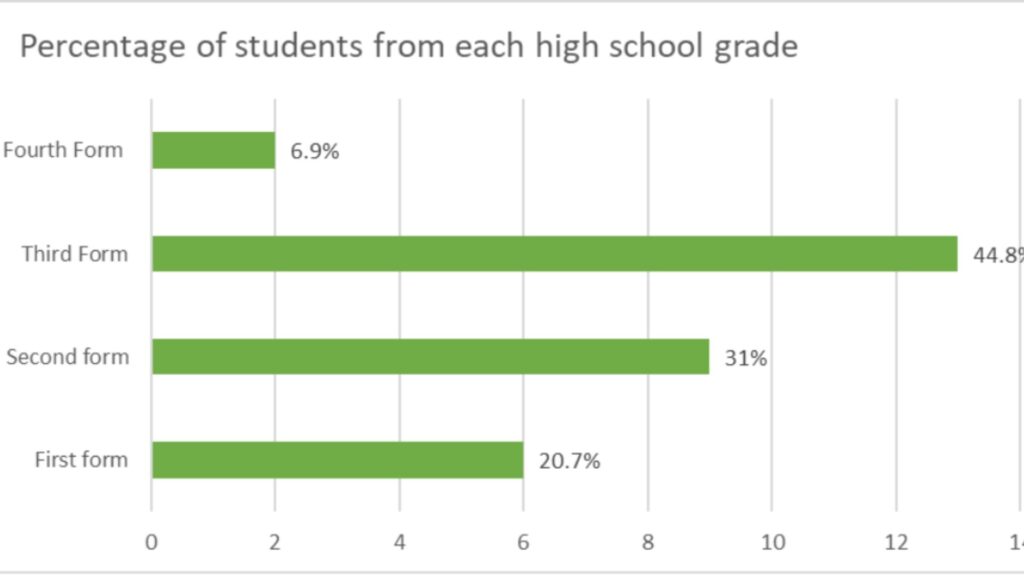
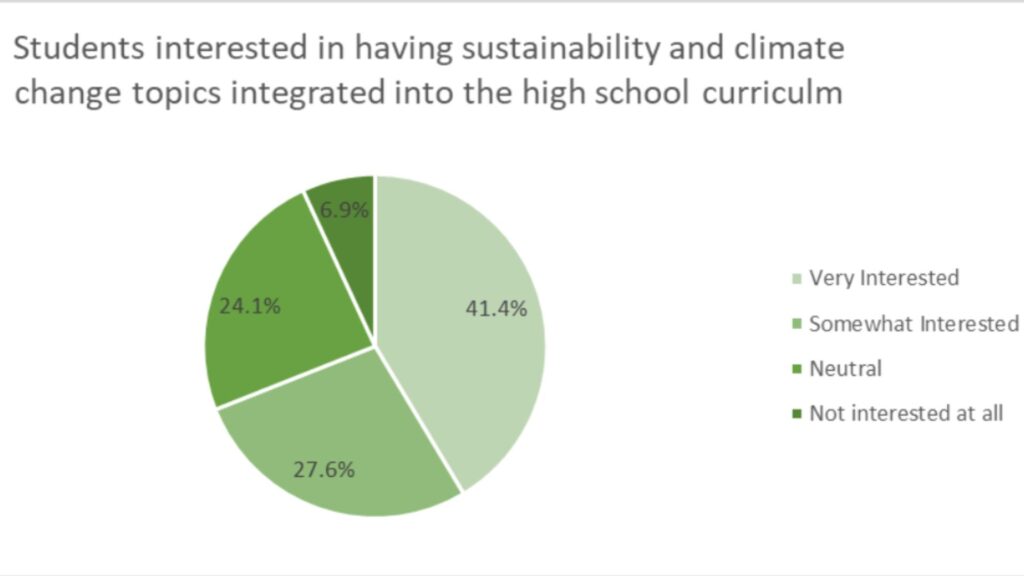
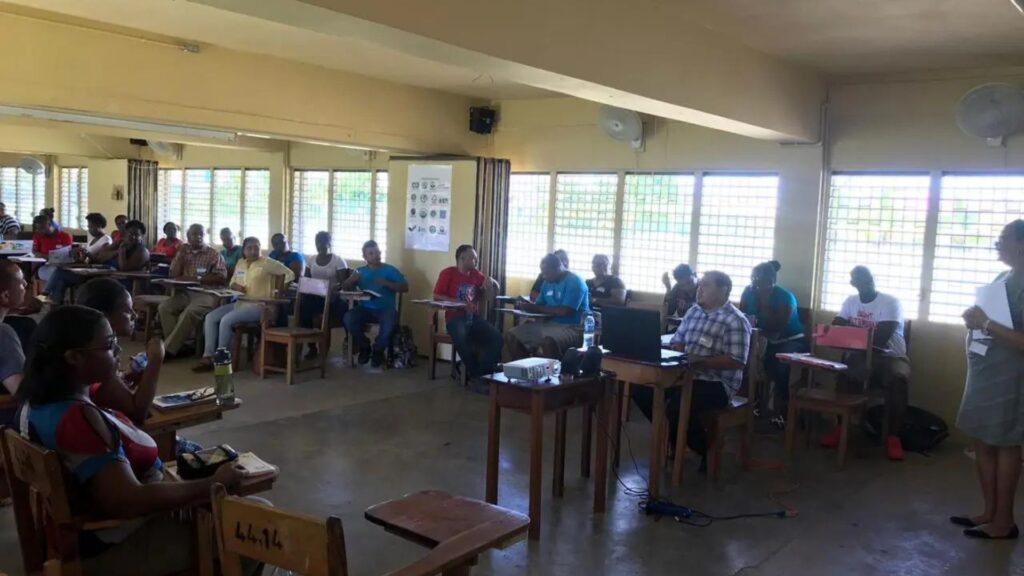
However, as the threat of climate change grows more severe, this form of education should no longer be periodic but a solid part of high school curriculums. Education prepares us for the future with subjects such as Math, English, and Science. But what future are we preparing for if we cannot enjoy it due to the negative effects of climate change?
Not only are students interested in environmental topics, but professionals in the field also emphasize their importance in the curriculum. Dr. Ivis Chan, Science Program Manager for Sustainable Landscapes, shared her thoughts on the issue. She expressed her deep concern about informing kids from an early age about what is happening to their homes. This will prepare future generations to understand better what their future might look like, whether it involves food shortages or increased hurricane damages, and how to prepare for these possibilities.
Dr. Chan also stresses the importance of viewing climate change as a tangible reality rather than something nebulous. To remove the haze surrounding the topic, it is crucial to provide education to younger generations.
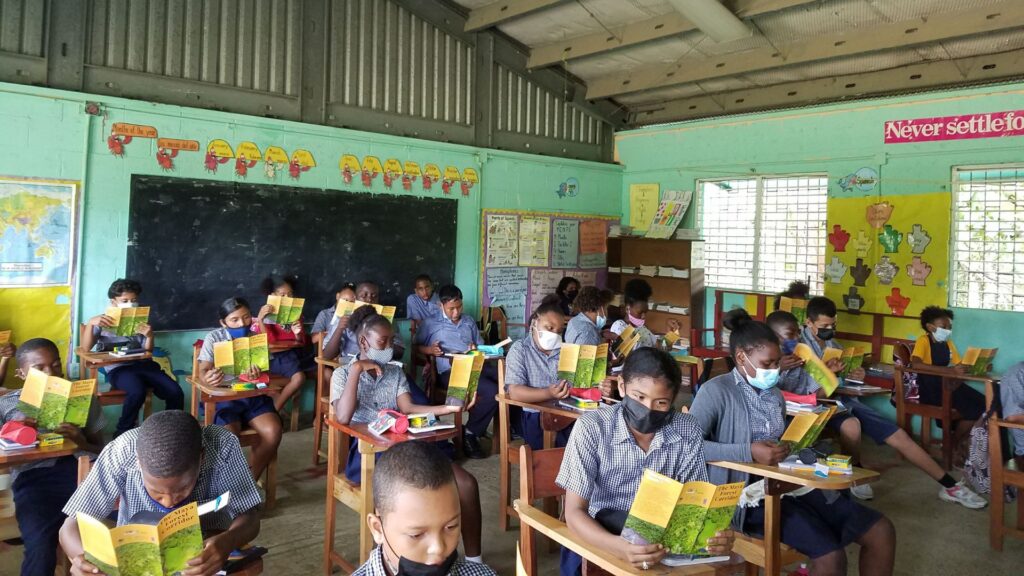
Of course, such a feat is not an easy task. It is important to face the reality that teachers have packed curriculums and children already have a heavy workload. Grades and examinations are of the highest priority, but are they truly the priority when we have underlying environmental and societal issues?
Dr. Chan shared her opinion on the true challenge of implementing climate education. Overcoming the barriers to climate education requires challenging the status quo. As mentioned above, we place high priority on grades and examinations. Although it is important to be prepared for national exams, safeguarding our planet is just as critical. As we step into the future of mitigating climate change, this requires innovation. We need to return to the roots of education, which involve investigation and critical thinking.
However, all is not bleak. From the survey, it is clear that high school students show an interest in climate education. In fact, they are not only interested but also aware of what climate change is.
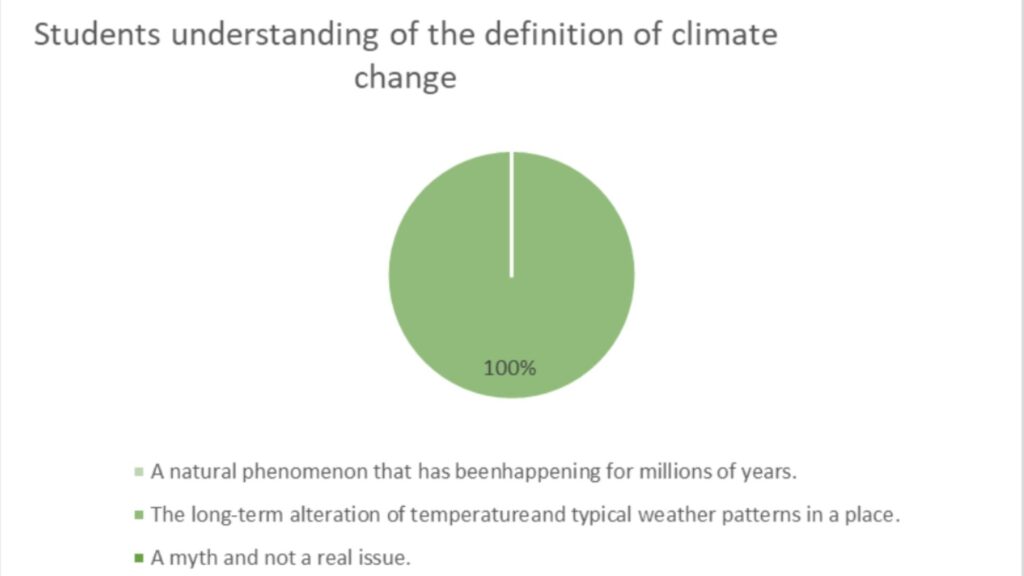
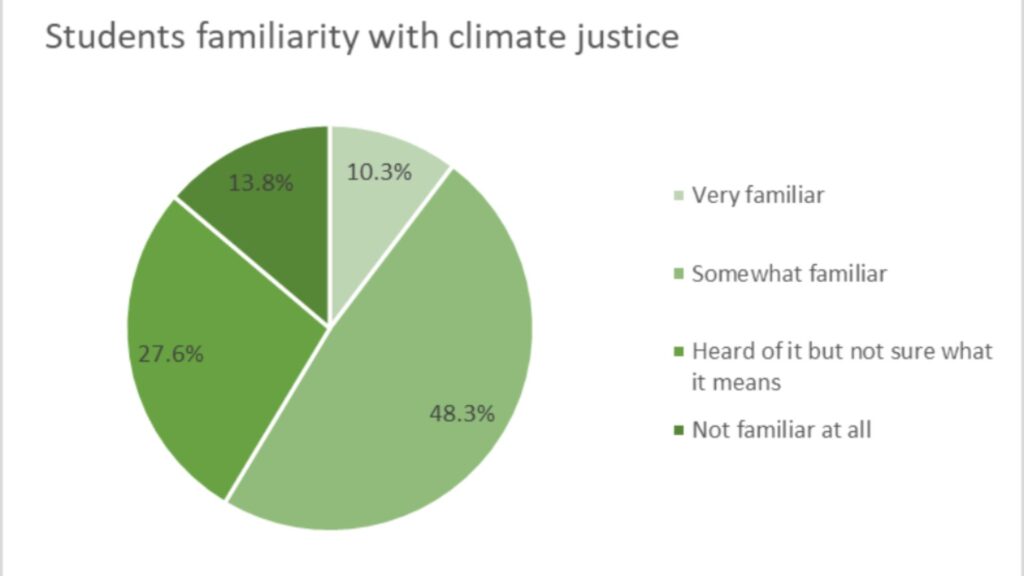
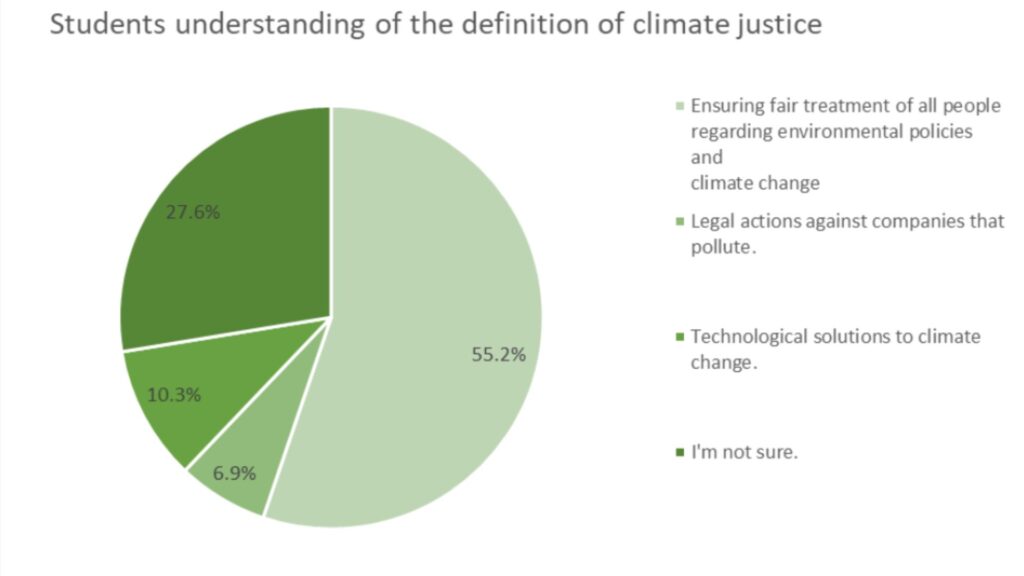
According to World Vision Canada, “The ultimate goal of education is to help an individual navigate life and contribute to society once they become older.” The survey results clearly show that youths need more work in terms of their preparedness for climate change and their interest in being better equipped for a sustainable future.
In line with this a workshop was conducted on June 15th to further gauge students’ interest in learning about environmental and sustainability topics such as Climate Justice. 58.6% of students expressed interest in the workshop.
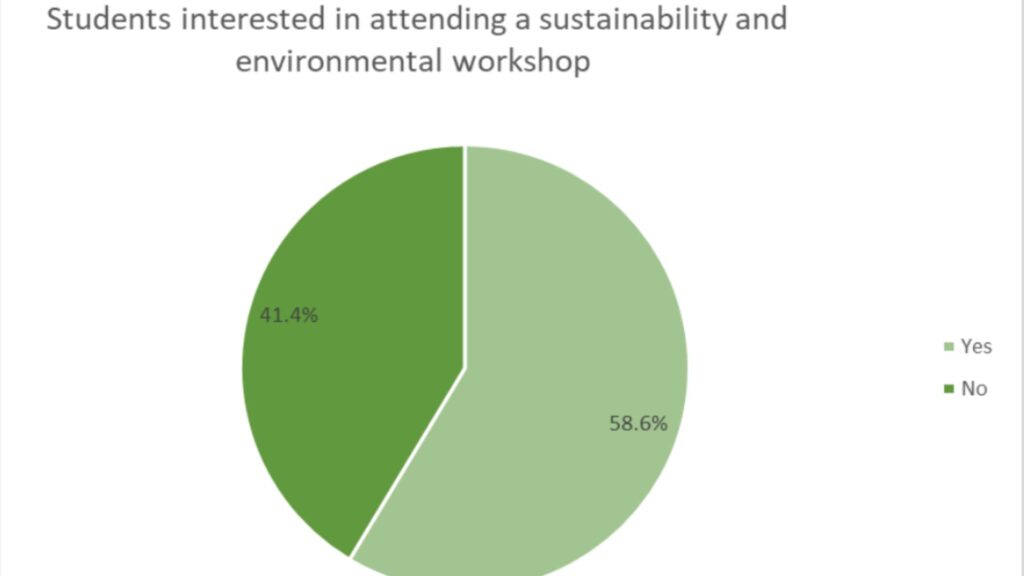
Although the youths who joined the workshop only got the tip of the iceberg in terms of climate justice, they all shared increased confidence regarding climate action. They also hoped for increased participation in similar initiatives.
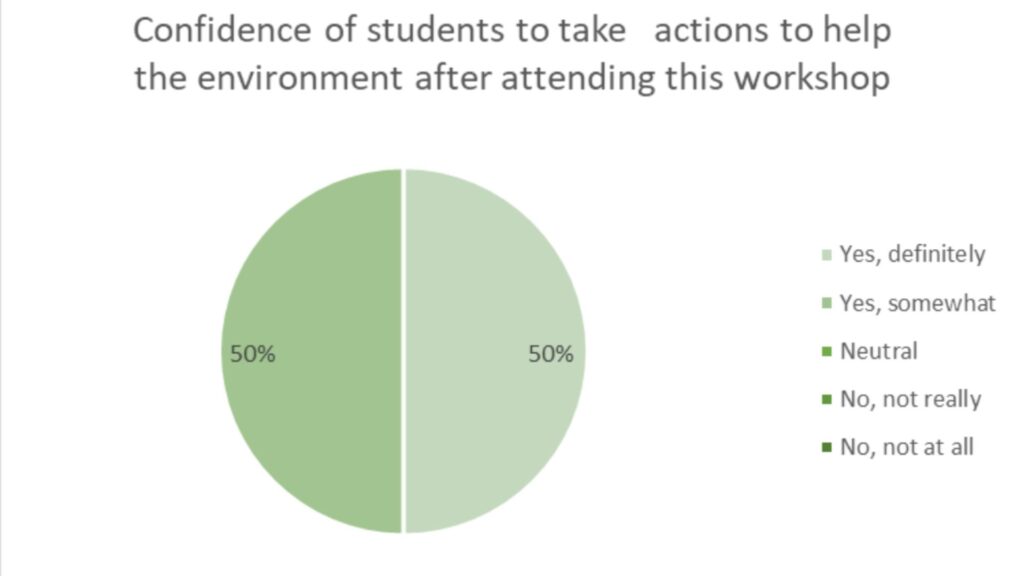
To reiterate the meaning of education, our goal is to prepare future generations. A future that is clearly at threat from climate change. In a world where we only have one life to live, let’s think about the lives that come after us and prepare them as best as we can in every aspect of their lives.
Stay tuned for the next story to hear how these kids want to contribute towards a sustainable future.
—
This story was originally published by Belize Channel 5, with the support of the Caribbean Climate Justice Journalism Fellowship, which is a joint venture between Climate Tracker and Open Society Foundations.